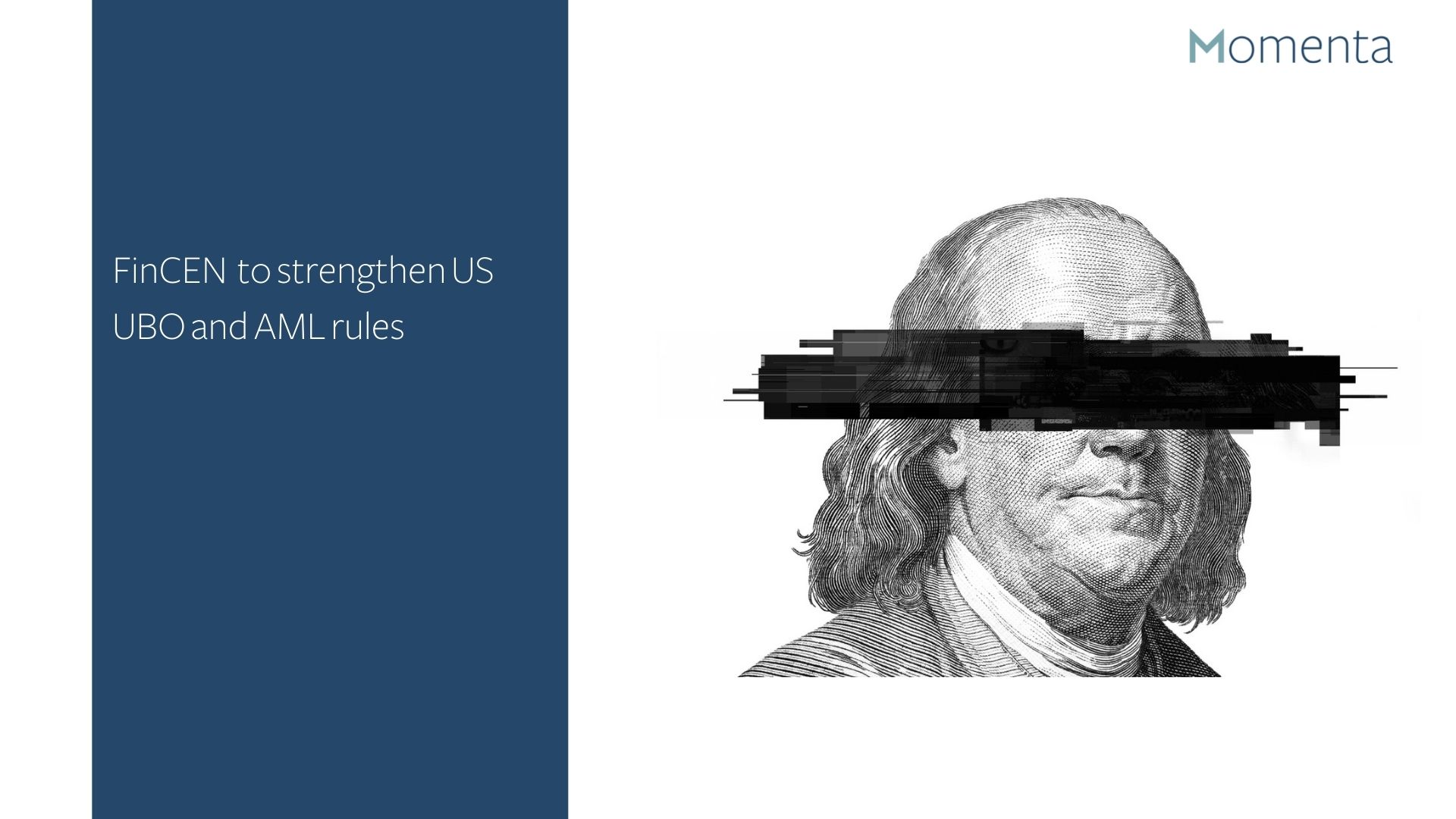FinCEN moves to strengthen US UBO and AML rules
What are the latest movements from FinCEN?
FinCEN is primarily interested in learning more about how to modernise risk-based AML/CFT laws and the subsequent advice published under the Bank Secrecy Act (BSA) so that they can continue to defend US national security in a cost-effective and efficient manner.
Their efforts to conduct a formal review of BSA regulations and related guidance, as mandated by Section 6216 of the Anti-Money Laundering Act of 2020, are also supported by today’s RFI. FinCEN will, in due course, present the review’s findings to Congress, along with administrative and legislative recommendations.
This formal review will assist FinCEN in ensuring that BSA regulations and guidance continue to protect the US financial system from threats to national security posed by various types of financial crime, and that BSA reporting, and recordkeeping requirements remain highly useful in combating financial crime.
The official review will also enable FinCEN to identify outdated, redundant, or otherwise ineffective regulations and advice that do not encourage a risk-based AML/CFT compliance regime for financial institutions, or that do not comply with US obligations to fulfil international AML/CFT standards.
FinCEN will make appropriate adjustments to regulations and advice, as needed, in cooperation with specified parties, to increase their efficiency. In addition, the official assessment will aid FinCEN in identifying administrative and legislative improvements that need to be made.
Why has there been a shift in focus from FinCEN?
Many states permit the creation of a corporation without requiring the disclosure of a business owner’s interest (BOI). As a result, the United States has become a breeding ground for shell firms engaged in illegal financial activity over time. The Panama Papers, the Paradise Papers, the FinCEN Files, and, most recently, the Pandora Papers have all highlighted this vulnerability.
The Pandora Papers, for example, revealed that many foreign officials use Wyoming as a tax haven for illicit funds. A controversial Russian oligarch, an Argentinian family engaged in money laundering and industrial waste issues, and the money manager for a Dominican dictator are among those named. The CTA is a long-awaited rebuke to this conduct.
The NPRM describes FinCEN, the US Department of the Treasury, other government agencies, and the Financial Action Task Force’s efforts to attack shell firms dating back to 2000. These efforts included, among other things, recommendations regarding the dangers of shell companies, and joint-agency guidelines on regulatory obligations for acquiring BOI for specific accounts and customer interactions.
The CDD Rule, which requires certain financial institutions to identify and verify the identities of the beneficial owners of legal entity customers upon account establishment, was released by FinCEN in 2016, and it was the first significant regulatory action.
How will this impact UBO registers?
According to Morrison Foerster a beneficial owner would be defined as “any individual who, directly or indirectly, either exercises substantial control over such reporting company or owns or controls at least 25 percent of the ownership interests of such reporting company.”
Substantial Control means:
- Service as a reporting company senior officer; authority over the appointment or removal of any senior officer or a majority or dominant minority of the board of directors (or equivalent body)
- Direction, determination, or decision of, or substantial influence over, important matters affecting the reporting company
- Any other form of substantial control over the reporting company (the Proposed Rule contains a non-exclusive list of examples of important matters, including mergers and compensation schemes)
The first three signs of substantial control are very specific. The first one identifies individuals with nominal authority, while the second and third ones concentrate on functional authority.
The fourth indicator is a catch-all aimed to detect those who exercise power in “unusual and unconventional” ways. FinCEN notes in the NPRM that a broad term could lead to misunderstanding, so the proposed rule expands on the definition (e.g., substantial control may be exercised through board representation).
However, FinCEN points out that a person’s daily management power over one component of a reporting company’s activity does not automatically constitute them a beneficial owner unless they also meet another element of the “substantial control” criteria.
Entities may be required to reveal more beneficial owners under the Proposed Rule than are now needed under the CDD Rule’s control programme, which requires a financial institution to report BOI for one individual with a “substantial degree of control over the organisation.”
How can a contingent workforce help you achieve strengthened UBO and AML systems and processes?
Utilising the expertise of contingent resourcing can offer many firms breathing space in terms of resolving any issues their AML or UBO controls may have. Setting up the right teams to ensure any gaps are identified will be key for firms this year as regulators place more pressure on financial service participants to strengthen current compliance systems and controls.
If your business has been impacted by additional regulatory or compliance pressures and needs additional staffing support in your compliance departments, speak to us to see how we can help in supplying experienced and effective additional members to your team.
Contingent teams can ensure a ‘no stone is left unturned approach’, and in a highly pressured regulatory environment, hiring contingent resource can make a vital difference in understanding the weaknesses of your risk assessments, as well as setting up concrete plans to resolve them.

